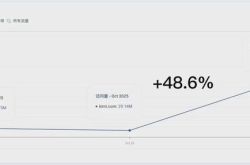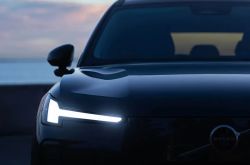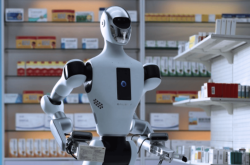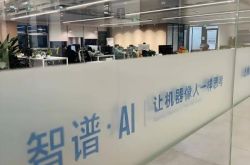Huawei Launches Pure HarmonyOS! Yu Chengdong: Originating from China, Autonomous and Controllable
![]() 06/26 2024
06/26 2024
![]() 717
717
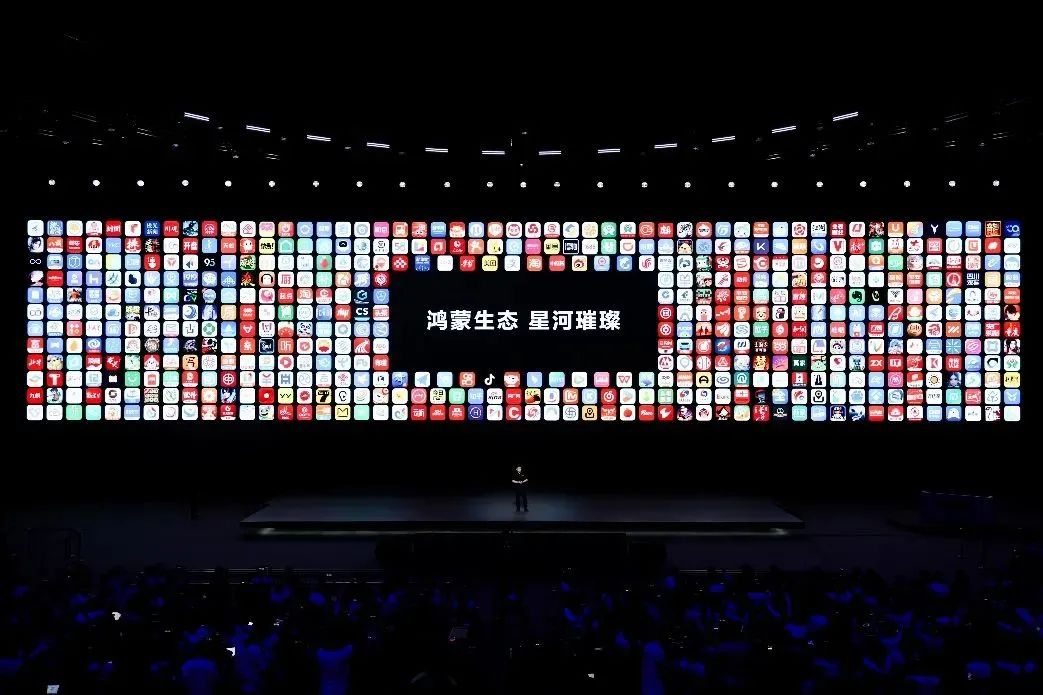
Written by Daoge
The "pure-blooded" HarmonyOS has finally made its official debut.
On June 21, at the Huawei Developer Conference 2024, Yu Chengdong, Executive Director of Huawei, Chairman of the Terminal BG, and Chairman of the Intelligent Vehicle Solutions BU, announced the official release of HarmonyOS NEXT, which will start Beta testing for developers and pioneer users from today. This system is based on the HarmonyOS kernel and will no longer be compatible with Android-developed APP applications.
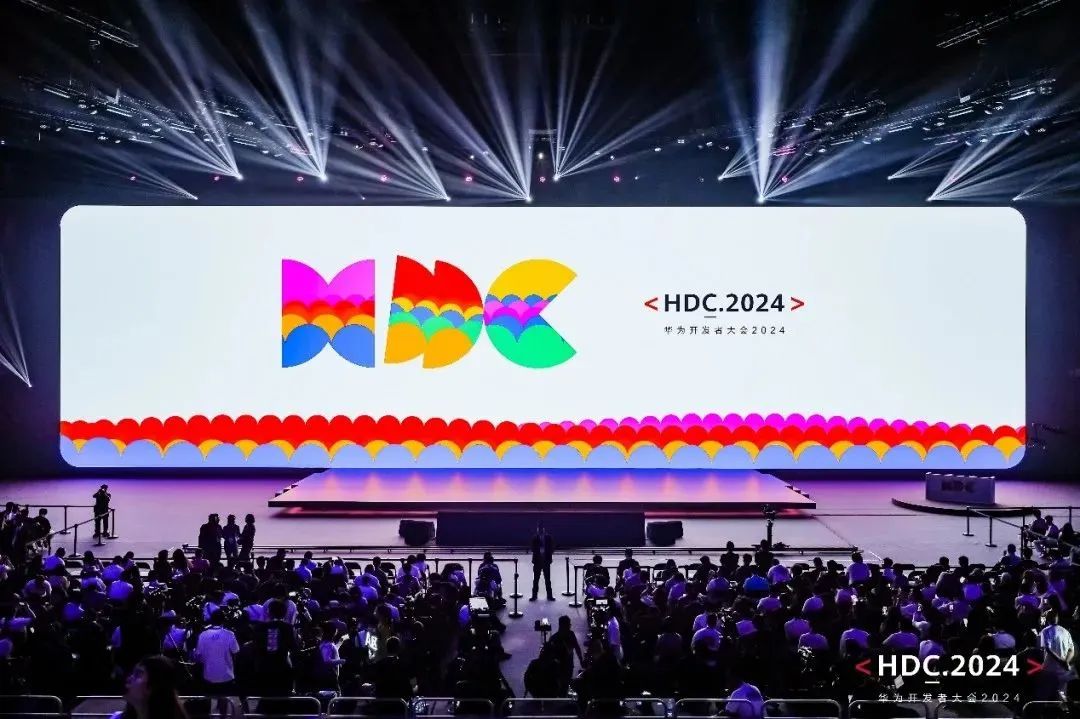
"From the first release of HarmonyOS to today, it has been 1778 days. During these five years, we have been together with our vast number of partner developers and consumers, working together to cross mountains and seas, and finally ushered in the 'light boat that has crossed countless mountains' of the HarmonyOS ecosystem."
Zhibaidao, who was present at the conference, was deeply impressed by Yu Chengdong's statement. On the path of domestic system development, Huawei has finally found its own successful way. According to Yu Chengdong, the number of HarmonyOS-connected ecological devices has exceeded 900 million, and the number of developers has reached 2.54 million. Moreover, among the top 5,000 mobile phone applications, more than 1,500 have completed the上架 of HarmonyOS native applications.
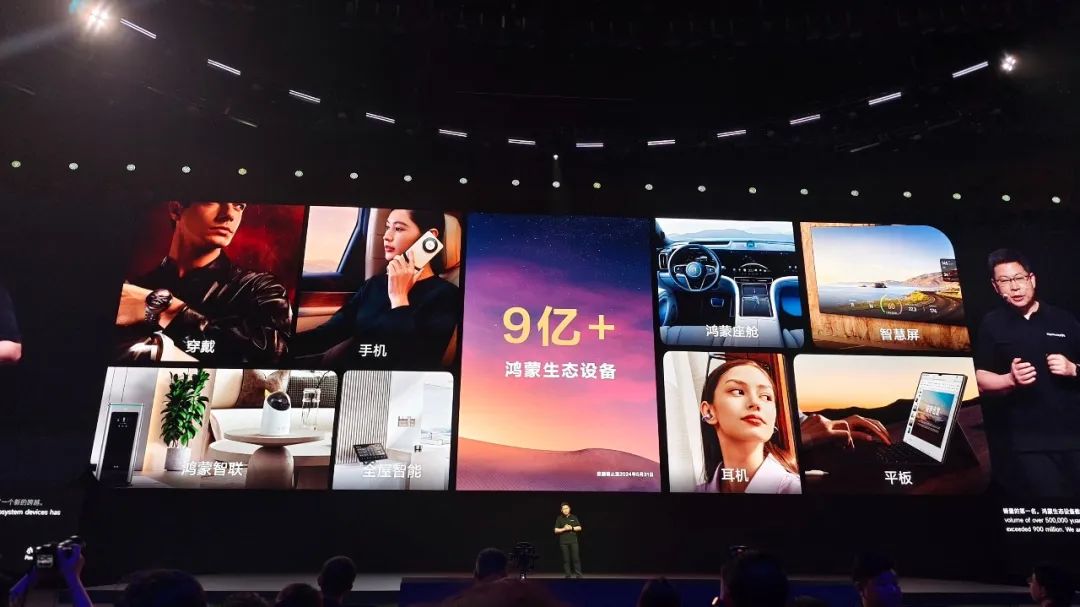
In addition to HarmonyOS, the conference also launched the latest technological innovations such as Pangu Large Model 5.0, Ascend AI Cloud Service, GaussDB database, etc. Zhibaidao has analyzed the key information of this conference to show you what not to miss.
01
Entering a New Era, an All-Scenario Smart Operating System
At the beginning of the conference, Yu Chengdong emphasized that Pure HarmonyOS achieves full-stack independent research and development from the inside out. "HarmonyOS is an all-scenario smart operating system built on Open Harmony, which is an operating system originating from China and under independent control.
Compared with other operating systems, Yu Chengdong pointed out that the biggest feature of Pure HarmonyOS lies in its being an all-scenario smart operating system, a distributed operating system for all scenarios aimed at the interconnection of everything, supporting multiple terminal devices such as mobile phones, tablets, smart wearables, smart screens, and in-vehicle systems.
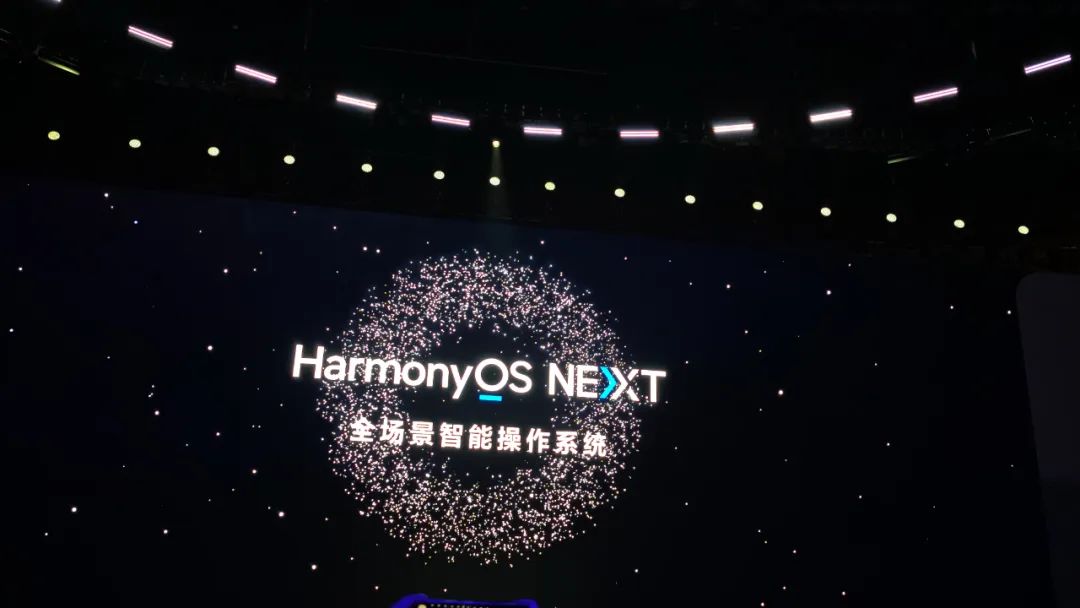
Existing operating systems, whether Android, iOS, or Windows, etc., basically correspond only to a certain type of hardware, such as PCs or mobile phones, and do not have the ability to cross scenarios.
Yu Chengdong said, "In the past, other operating systems were fragmented between different terminals, but HarmonyOS NEXT is different. Our solution is: one system, unified ecosystem."
In the future, with the era of interconnected everything, the number of terminal types will show explosive growth. If an operating system or application needs to be developed for each type of hardware, it will not only cause a low interactive experience in different hardware terminal ecosystems but also affect development efficiency, which does not conform to future development trends.
Therefore, the launch of Pure HarmonyOS conforms to the trend of the times and is at the forefront of this trend.
Moreover, with the rapid increase in the number of HarmonyOS devices, the ecosystem surrounding HarmonyOS has taken shape, further supporting HarmonyOS to cross the line of life and death and move forward steadily.
According to a previous report by CounterPoint, in the first quarter of 2024, Huawei's HarmonyOS share in the global market has grown from 2% to 4%, while its share in the Chinese market has surged to 17%. During the same period, Apple's iOS share in the Chinese smartphone operating system market declined by 4 percentage points to 16%, officially being surpassed by HarmonyOS.
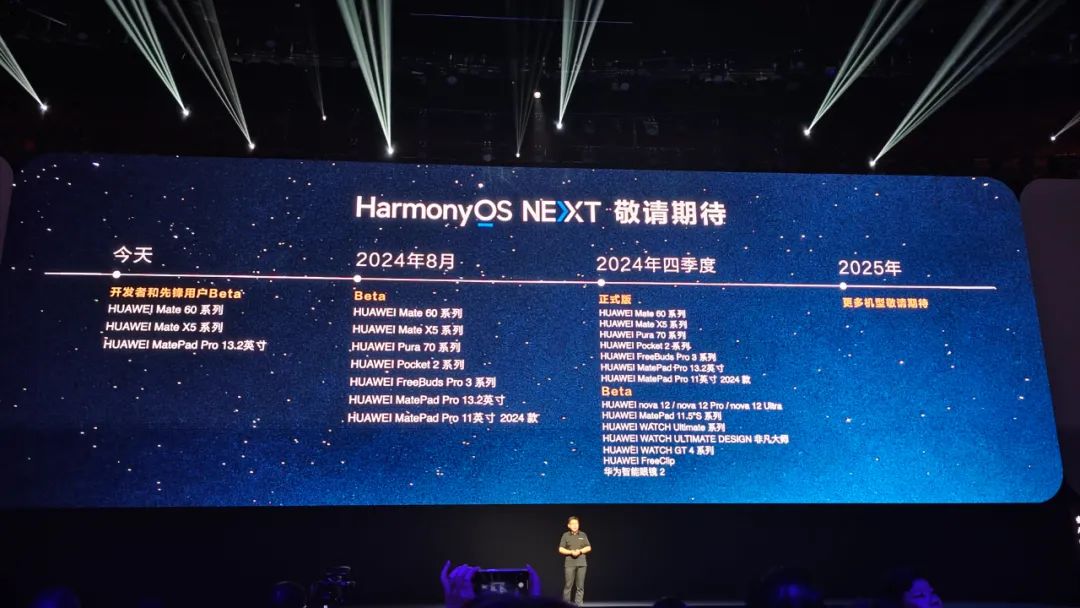
Yu Chengdong also announced the "timetable" for Pure HarmonyOS: HarmonyOS NEXT will officially start Beta testing for developers and pioneer users from today, and multiple devices such as the Huawei Mate 60 series, Mate X5, and MatePad Pro 13.2 inches will start upgrading today.
According to the timetable, the Huawei Pura 70 series, Pocket 2 series, wireless earbuds FreeBuds Pro 3 series, and MatePad Pro 11-inch 2024 models will also join the Beta testing in August this year.
By the fourth quarter of 2024, devices that participated in the Beta testing in the early stage will be upgraded to the official version of HarmonyOS NEXT, and devices such as the nova series, Huawei watches, and glasses will also start Beta testing.
"When the Mate70 series is released in the fourth quarter of this year, HarmonyOS NEXT will achieve large-scale commercial use," Yu Chengdong said.
02
Upgrading Xiaoyi to an Intelligent Entity, Seeing the Chassis of Native HarmonyOS?
After Yu Chengdong, He Gang, the newly appointed CEO of Huawei's Terminal BG, took the stage to provide an in-depth interpretation of key announcements such as HarmonyOS NEXT and HarmonyOS native intelligence.
He Gang said that Pure HarmonyOS is the biggest upgrade in Huawei's operating system history and is an all-scenario smart operating system for the next decade. There are three major aspects of the upgrade of Pure HarmonyOS: all-scenario, native intelligence, and native security.

"All-scenario" refers to redesigning the system's all-scenario experience to enable HarmonyOS applications to operate seamlessly and collaboratively across devices. For example, when a user is using the "DingTalk" mobile phone for a meeting, by bringing the phone close to the tablet, the meeting can be directly transferred to the tablet's "DingTalk" without additional operations, and the meeting will not be interrupted between the two.
"Native intelligence" refers to integrating AI large models into the system to provide system-level AI capabilities, which Huawei calls Harmony Intelligence.
Comparing it with Apple Intelligence released by Apple a few days ago, one can sense the similarities between the two. Huawei has made significant upgrades to the voice assistant Xiaoyi, which is no longer just a voice assistant but has been upgraded to "Xiaoyi Intelligence" with the support of large models.
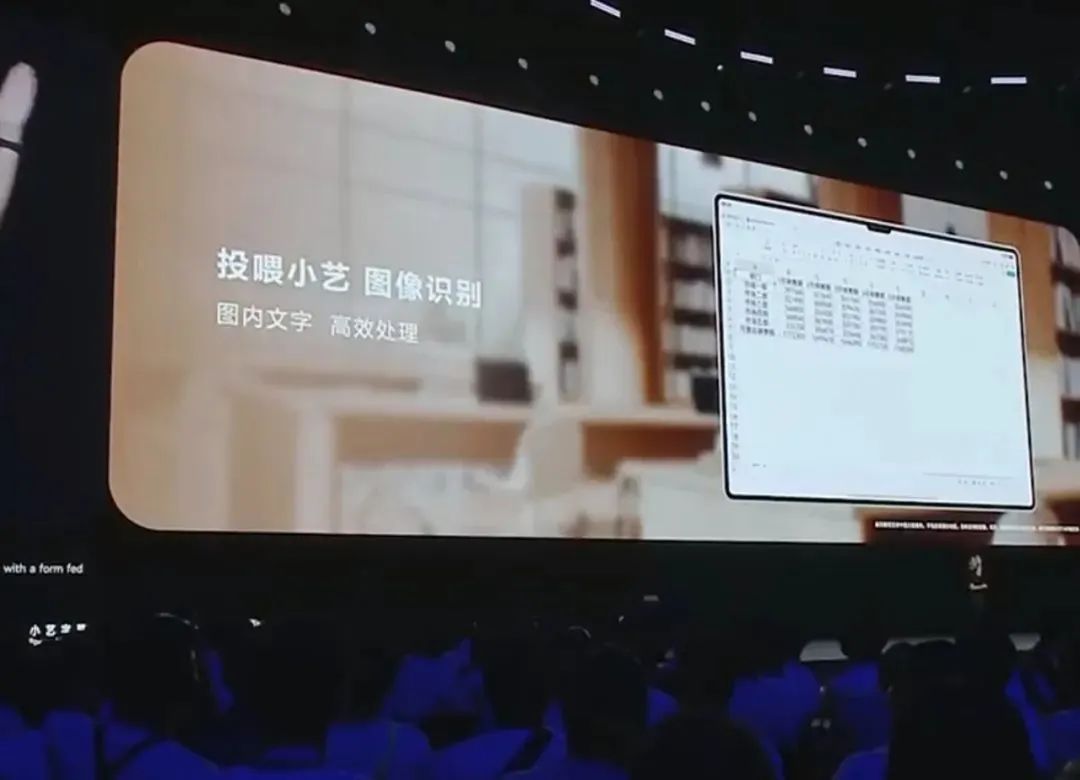
He Gang said that Xiaoyi Intelligence has reached a knowledge base of one trillion tokens, with 23 TOP scenarios for memory perception and a 90% success rate for reasoning and planning tasks.
Moreover, Xiaoyi is open, and its intention framework can globally understand user intentions and complete service distribution and systems for all-scenario devices. Currently, it has more than 300 cooperating services, covering more than 200 intentions in key vertical fields.
Through voice control, users can perform many operations, such as directly recognizing tables in images and generating Excel tables, recognizing content in images and cameras, and allowing visually impaired individuals to "hear" the real world through voice.
In the demonstration, Xiaoyi can help visually impaired users find food in the refrigerator, intelligently identify what food is in the refrigerator, where it is located, and even judge the freshness of the food.
"Huawei hopes that everyone can enjoy the benefits brought by AI," said He Gang.
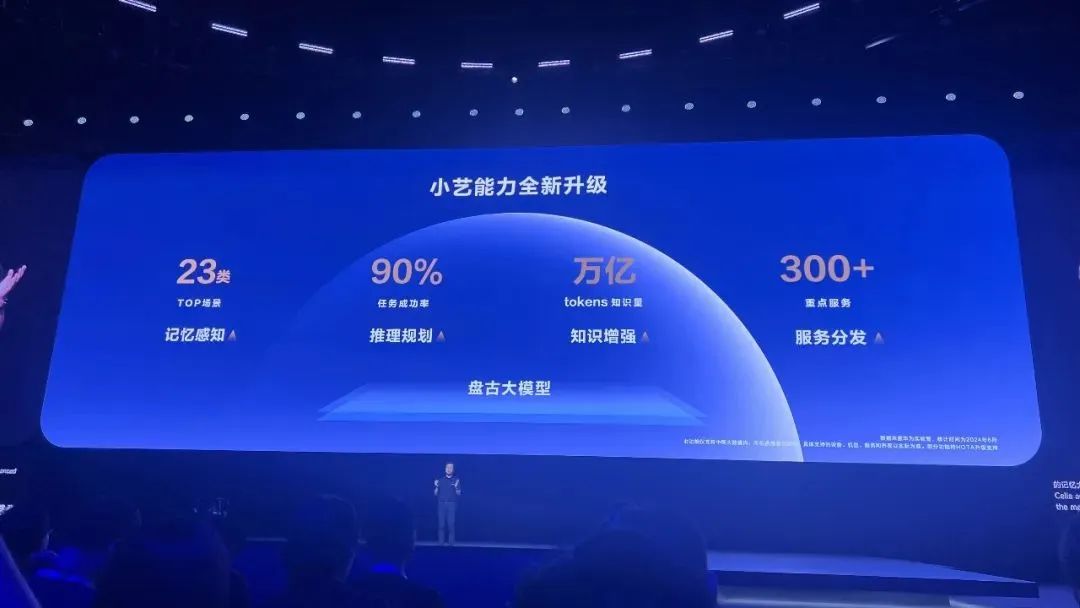
Overall, Xiaoyi has transformed into a travel expert, office assistant, entertainment expert, life assistant, and sports expert. Zhibaidao believes that the upgraded "Xiaoyi Intelligence" has achieved "what you see can be recognized" and "what you recognize can be operated," and its capabilities are not inferior to Apple Intelligence, which embraces OpenAI.
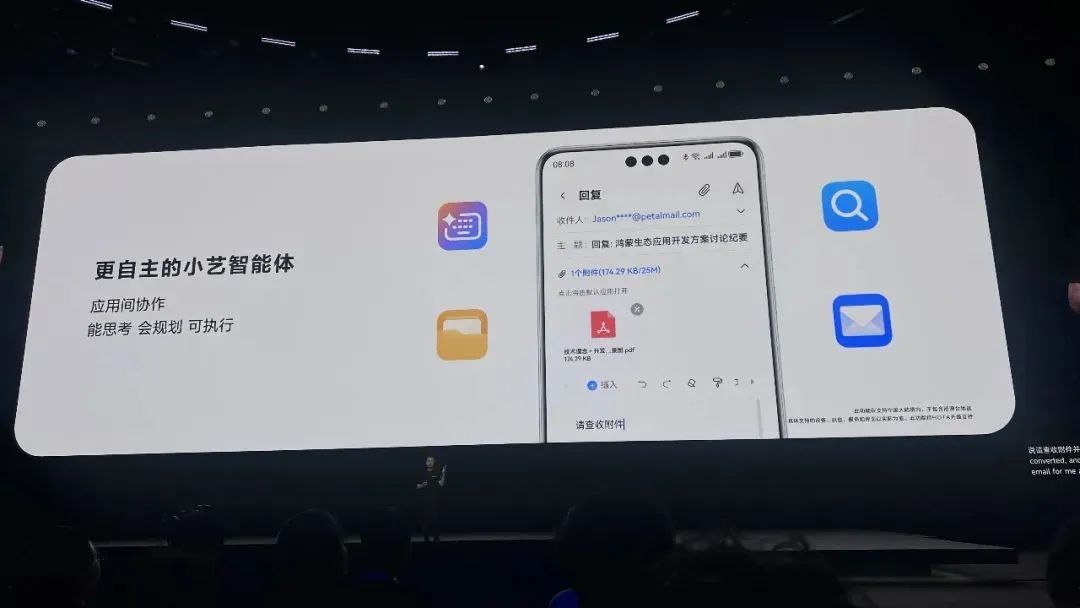
"Native security" refers to Huawei reconstructing the security system and order of HarmonyOS. Huawei has introduced a new "Star Shield Security Architecture," and Pure HarmonyOS prohibits nine types of unreasonable permissions from the system bottom, such as reading text messages and app lists. In addition, if an app needs to access necessary local data such as images and documents, HarmonyOS will also provide system-level security.
For example, when a user posts an image on Xiaohongshu, Xiaohongshu cannot read the local album until the user selects to end and the upload is successful.
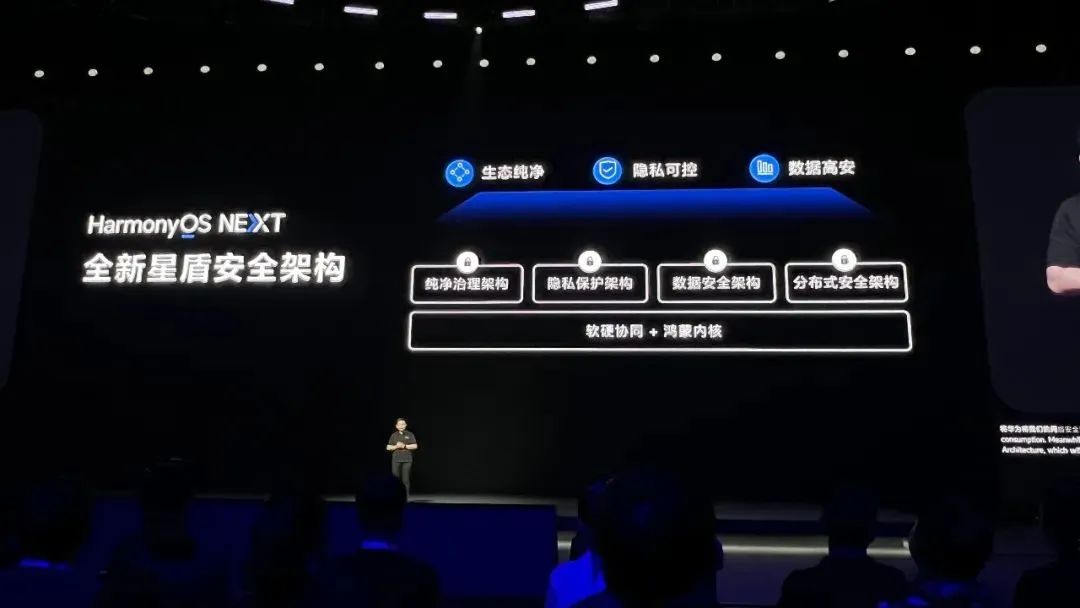
After He Gang, Gong Ti, President of Huawei's Terminal BG Software Department, gave a comprehensive introduction to HarmonyOS native applications.
"HarmonyOS is not a replacement for Android or iOS. It's not just rewriting the code, but redesigning the user experience," according to Gong Ti. Pure HarmonyOS surpasses the Linux kernel, with an overall performance improvement of 10.7%. This will increase device performance by 30% while reducing power consumption by 20%.
Gong Ti used shared bicycles as an example to introduce the cooperation between Meituan and HarmonyOS. Both parties redesigned the riding experience. In the past, it took at least 5 steps to unlock the bike from unlocking the phone to completing the unlocking. However, with HarmonyOS's ability to scan the QR code directly, it only takes one button to unlock, turning 5 steps into one, and the bike can be returned directly even when the screen is locked, making it very convenient.
Gong Ti also said that the all-scenario experience is a typical feature of HarmonyOS. By using HarmonyOS's products to uniformly construct application templates and code samples, one-time development and multi-terminal deployment can be achieved, satisfying multiple terminal forms with one set of engineering. A large amount of code can be reused, and differentiated experiences across multiple terminals can also be achieved.
Currently, HarmonyOS has summarized the experience of joint development with partners into 18 vertical code samples, such as e-commerce service applications, entertainment applications, and automotive travel applications. Similar experience applications can be developed by following the samples.
03
Pangu Large Model 5.0 Goes Online, Giving Robots a New Soul
Apart from Pure HarmonyOS, Zhang Ping'an, Executive Director of Huawei and CEO of Huawei Cloud, took the stage to introduce the launch of Pangu Large Model 5.0.
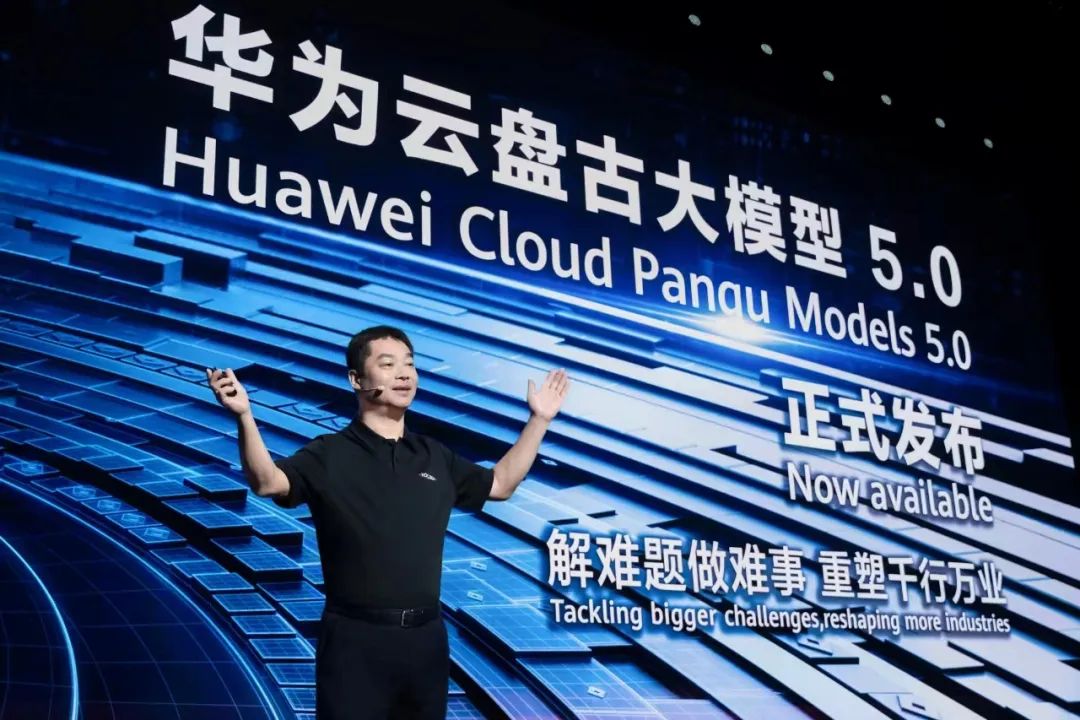
Zhang Ping'an said that since the release of Pangu Large Model 3.0 a year ago, with the slogan "No Poetry, Only Work," Pangu Large Model has been implemented in more than 30 industries and over 400 scenarios, with commercial applications in areas such as government affairs, finance, manufacturing, pharmaceutical research and development, coal mining, steel, railway, autonomous driving, industrial design, architectural design, and meteorology.
At this conference, Pangu Large Model 5.0 has been upgraded in three aspects: full series, multimodal, and strong thinking.

Zhang Ping'an introduced that Pangu Large Model 5.0 includes models with different parameter specifications to adapt to different business scenarios.
The Pangu E series with billions of parameters can support intelligent applications on mobile phones, PCs, and other terminal sides; the Pangu P series with tens of billions of parameters is suitable for low-latency, low-cost reasoning scenarios; the Pangu U series with hundreds of billions of parameters is suitable for handling complex tasks and can serve as the foundation for enterprise general large models; and the Pangu S series super large model with trillions of parameters is a super large model for handling cross-domain multi-tasks.
In terms of multimodality, Pangu Large Model 5.0 can more accurately understand the physical world, including more modalities such as text, images, videos, radar, infrared, and remote sensing. In terms of strong thinking, Pangu Large Model 5.0 deeply combines thinking chain technology with strategy search technology, greatly enhancing mathematical capabilities and complex task planning capabilities.
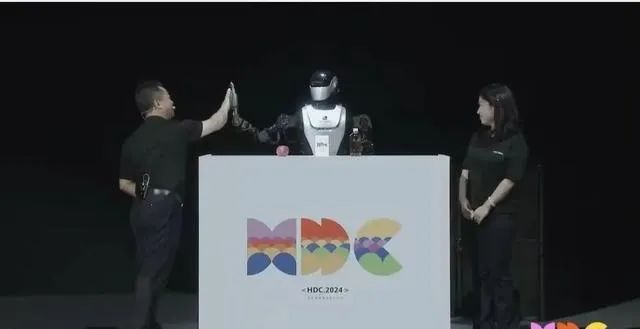
At the conference, Zhang Ping'an also showed the Leju Kuafu humanoid robot, which is equipped with the Pangu embodied intelligence large model and has significantly improved intelligence and generalization capabilities, making it suitable for widespread application in industrial and household scenarios.
Overall, from the fully self-developed HarmonyOS kernel to the stunning upgrade of Xiaoyi Intelligence, to the innovation of the security architecture, the official launch of Pure HarmonyOS and the debut of Pangu Large Model 5.0 represent a significant leap forward for Huawei in the fields of operating systems and artificial intelligence, as well as a major breakthrough in domestic technology. It remains to be seen what new breakthroughs HarmonyOS and Pangu can achieve in the future.

